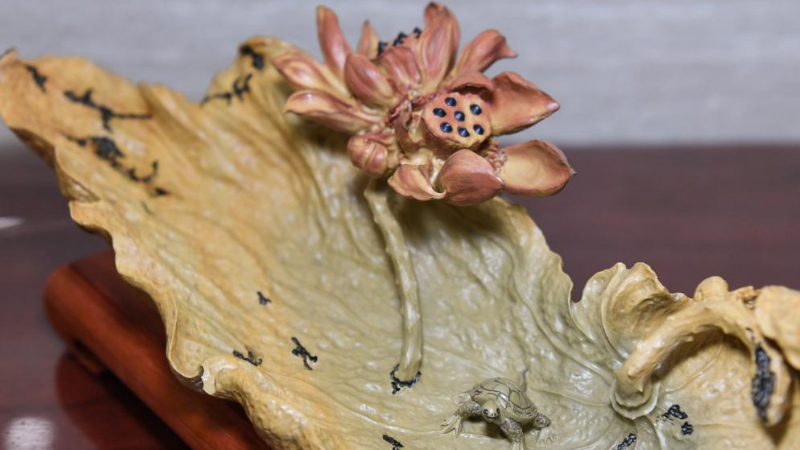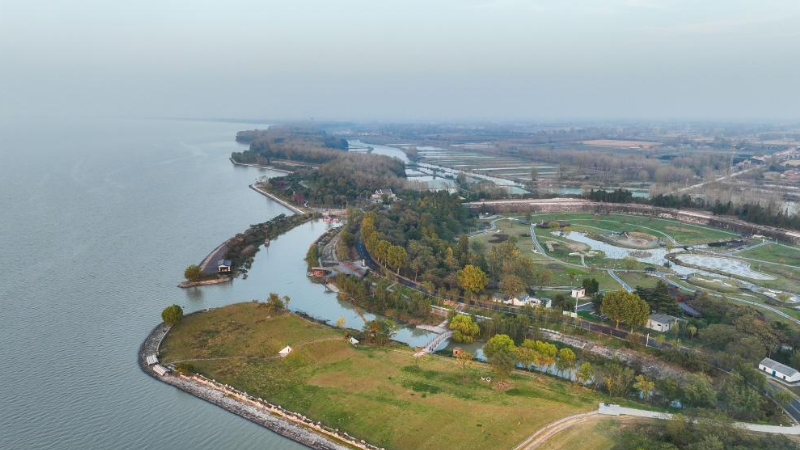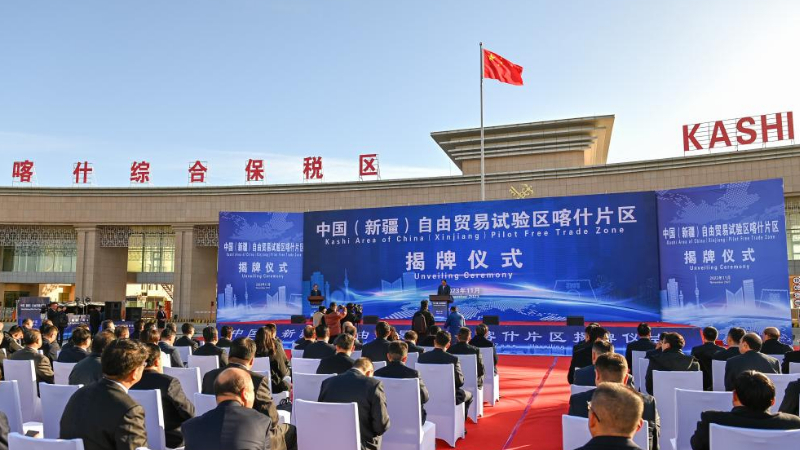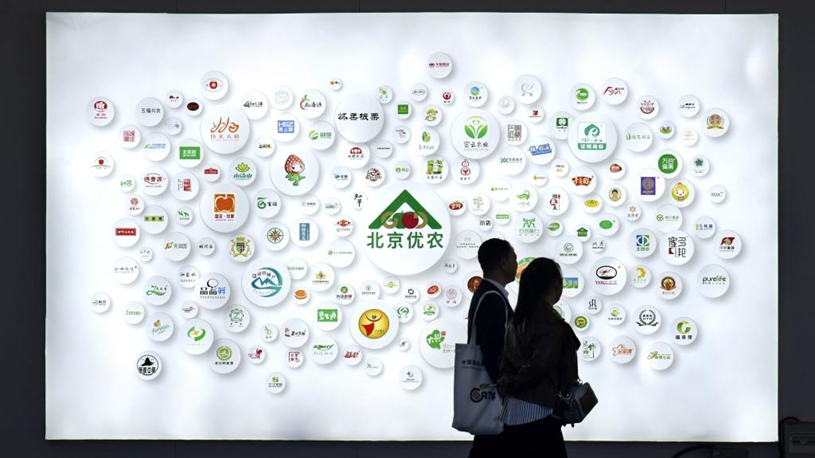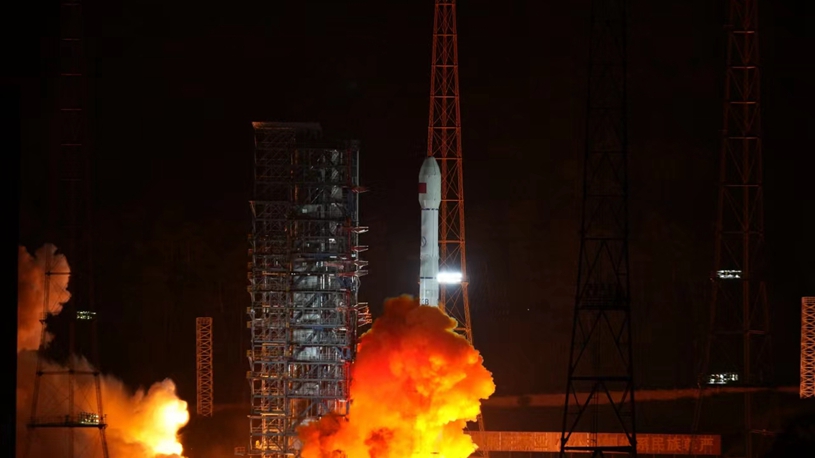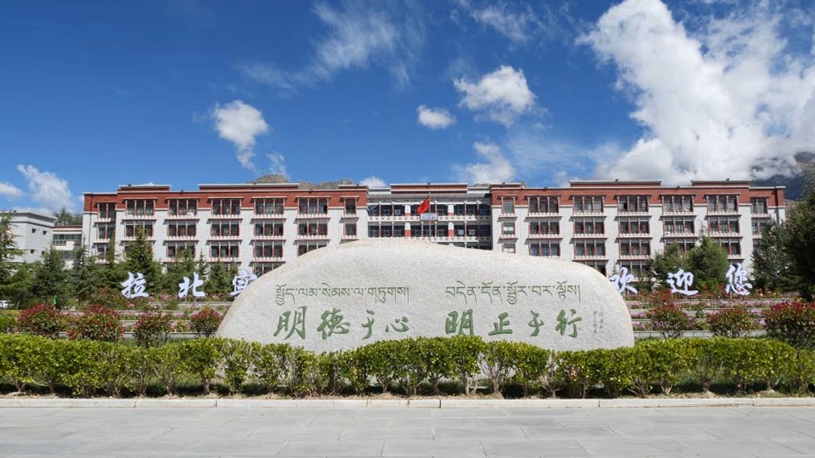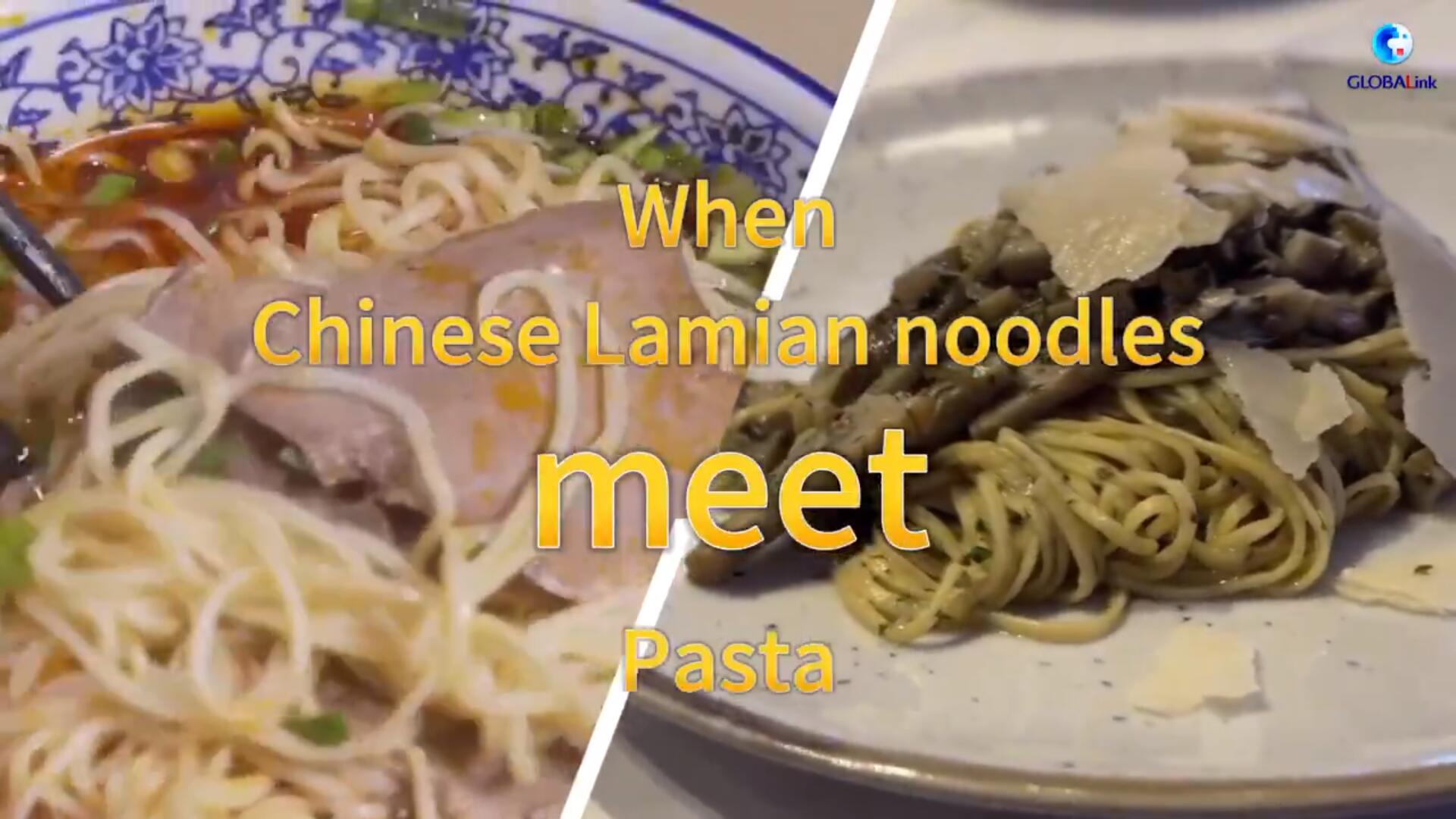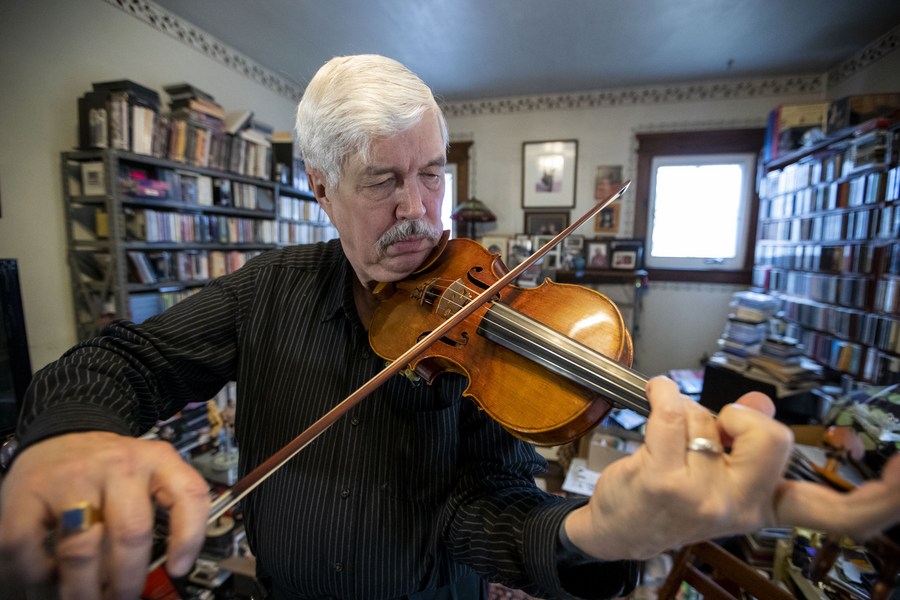
Davyd Booth, a violinist and second keyboard player with The Philadelphia Orchestra, practises violin at his home in New Jersey, the United States, Jan. 29, 2019. (Xinhua/Wang Ying)
BEIJING, Nov. 14 (Xinhua) -- When young American violinist Davyd Booth joined the Philadelphia Orchestra in 1973, he likely couldn't have imagined that the orchestra and he would become closely intertwined with China in the following 50 years and beyond.
In September 1973, the Philadelphia Orchestra became the first American orchestra to visit China since the founding of the People's Republic of China.
The orchestra performed together with the China National Symphony Orchestra and the Asian Performing Arts Council in Beijing on Friday, during its 13th visit to China over the past 50 years.
"I was just absolutely thrilled when I was told to come on the tour in 1973. It was an amazing experience for me," Booth recalled. "I had never been out of the United States then, and I didn't even have a passport. I read about China in school books and watched it on TV, but I never dreamed that I would come to actually see the country."
He added that the country at that time was very different from what it is today. "There were not many huge buildings and automobiles. Everyone got around by bicycle, and I had never seen so many bicycles, literally hundreds of thousands of bicycles."
Booth said the exchange of communication between people from the two countries was a great discovery for both sides, marking a wonderful beginning of friendship.
During the concert in 1973, the orchestra played Beethoven's Symphony No.5, the Moon Reflected on the Er-quan Spring, and some other famous pieces of music from the two countries. It was Booth's first-ever exposure to traditional Chinese music and instruments.
"The tour was one of the most important events in my life. The performance was incredible. It is still a strong thread that has continued for 50 years," Booth said. "The Chinese appreciation of Western music has a long history. Now, the talents that come from China, like Lang Lang, are absolutely awesome. Every time we come back, the audience appreciation is really wonderful."
On Friday night, the orchestra performed some of the same pieces as in the concert 50 years ago, with the addition of enchanting programs featuring the poetry of the Tang Dynasty (618-907).
"One of the great things about music is that every country and every culture has its own brand of music. We came here and played concert with Chinese musicians. The unique and beautiful sounds make you immediately think of China," Booth said.
"Music is like great artwork. It affects your heart. I have pieces that I have played hundreds of times, and I never get tired. Each time you play it, you can get a different perspective on it, and it touches a different part of your heart," he added. "The hearts are the same."
During the five decades after the orchestra's first China tour, Booth witnessed China's rapid development. He vividly recalls the 1990s, when he stayed at a hotel in China and was amazed by the rapid construction pace of a building. He said that a new floor would appear each day, showcasing an impressive level of development.
"I think we can show people that there is positive hope for everyone everywhere," said the 73-year-old violinist. "Music is a universal language. It is the most abstract art form that can touch people and become a bridge to connect us."
Matias Tarnopolsky, president and CEO of the Philadelphia Orchestra, said, "History has told a story. Here we are to celebrate the 50 years of friendship, which has gone through generations. Music gives voice to thoughts and ideas that words alone cannot convey, and that is the power of music." ■

